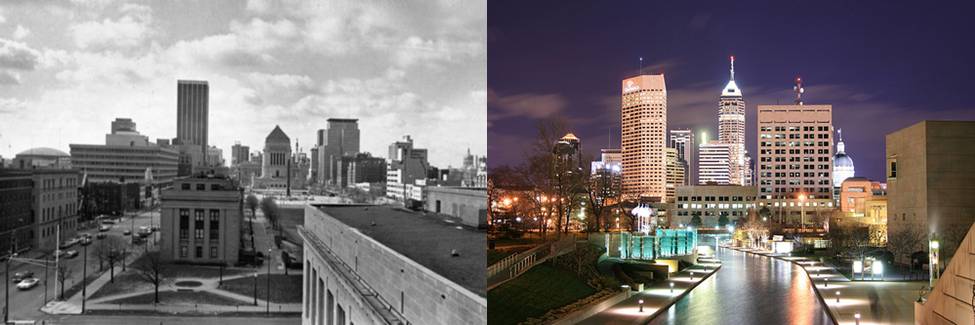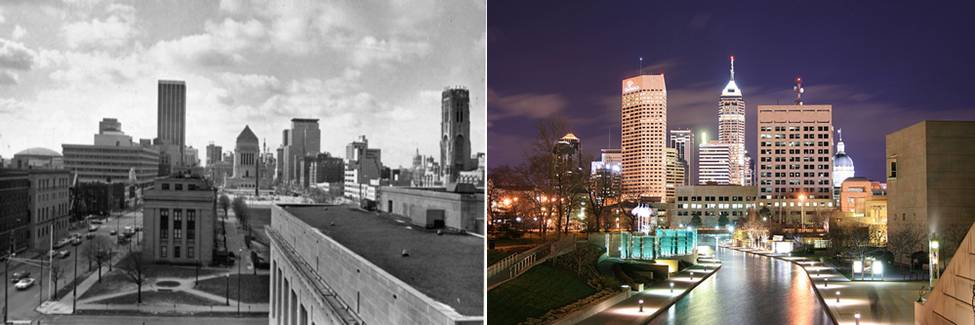Is it fun slang? Or unkind reminder of past label?

“A rose by any other name would smell as sweet.” So says William Shakespeare in Romeo and Juliet. So why do people bristle at calling Indianapolis “Naptown?” And where did the name come from anyway?
A sleepy perception changed
Most people’s perception is that “Naptown” is a jab, calling Indy a sleepy city. But Indianapolis’s recent growth, both over time and recently, most notably with the 2012 Super Bowl, have given a reason to shake the negative nickname, as evidenced in the television special Naptown to Super City, produced by the Indianapolis Star and Indiana Public Television. “Civic leaders and citizens take pride in the city’s transformation and clearly believe, with great justification, that Indianapolis has significantly transcended its sleepy past. So the “Naptown” label is part of the old baggage they want to jettison,” says Aaron M. Renn of Urbanophile.
History in slang
It’s generally believed to have been popularized by jazz musicians along Indiana Avenue in the 1930s. Leroy Carr, and Indianapolis blues musician, sang about the “Naptown Blues” in a 1929 recording. “When you get to Naptown, the blues won’t last very long. Because they have their pleasure, and they sure do carry on,” sang Carr. Known for hip, abbreviated vernacular, club musicians likely popularized the term to shorten a six-syllable word for casual conversation. “This makes sense because, face it: Indianapolis is a mouthful,” says Indianapolis Star reporter Will Higgins in his article about “Naptown.” “Nobody says all six syllables. Even those who went east to college leave it at five: Indianaplus. Most people seem to think four is plenty: Inyanaplus, or Indenaplus.”
Naptown’s resurgence
The term “Naptown” has had multiple bouts of popularity in between peroids of disuse or insult, and it’s generally been artists, musicians – and yes, radio stations – that have popularized it.
In the 1960s, rock station WNAP called its city “Naptown.” “WNAP’s deejays (who were known to play the Beatles’ White Album practically in its entirety) were instructed to use the term “Naptown” frequently, ‘to take the word and turn it around, to change the spin on it,’” said Al Stone, the station’s co-program director from 1968 to 1971.
In the early 2000s, up-and-coming rock musicians and hip-hop artists began using the word more regularly, Alan Berry, owner of Berry’s Music, a hip-hop music store at 11th and Arlington, noticed his music-savvy customers saying “Naptown.” They meant no disrespect. “It was an old name, but I could see it was becoming hip. I was going to use it,” he said. His second store? Naptown Music.
What do you think: having shed its sleepy label, is “Naptown” a fun nickname for our city? Or is it a stark reminder of unkind words of the past?
